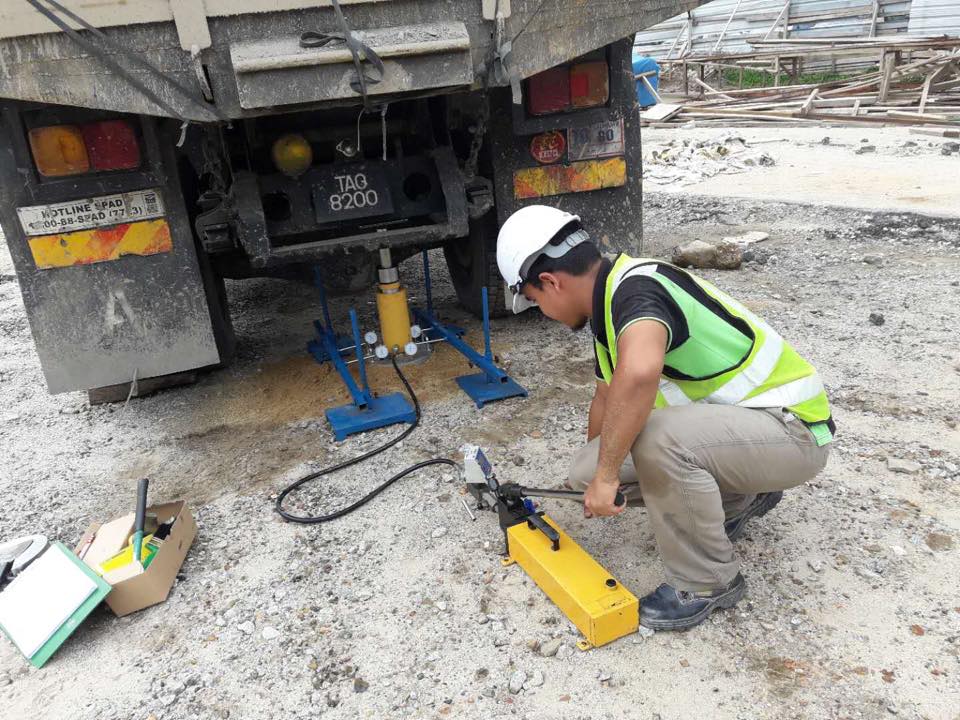.png)

Plate Bearing Test
The Plate Bearing Test is a field load test that evaluates the deformation and load-bearing capability of soils and pavement subgrades under static loads. The test, which follows BS 1377-9 or ASTM D1195/D1196, includes applying incremental loads to a rigid circular plate in contact with the ground and measuring the resulting settlement. It is a straightforward approach for determining subgrade stiffness and is widely used to calculate the Modulus of Subgrade Reaction (k-value), which is critical in the construction of foundations, pavements, and slabs on grade. The test is particularly beneficial in granular soils and in determining the homogeneity and compaction quality of prepared subgrades. The Plate Bearing Test assists engineers in determining if bearing capacities are adequate and that long-term settlement will remain within acceptable limits, hence assuring structural stability and safety.
Advantages of Plate Bearing Testing:
 Malaysia
Malaysia